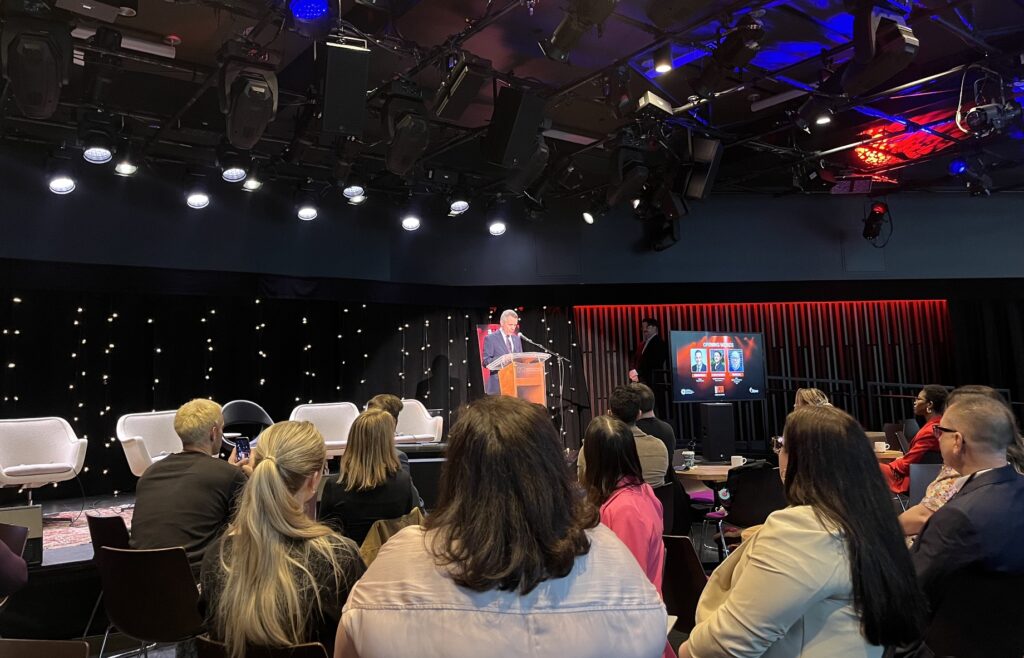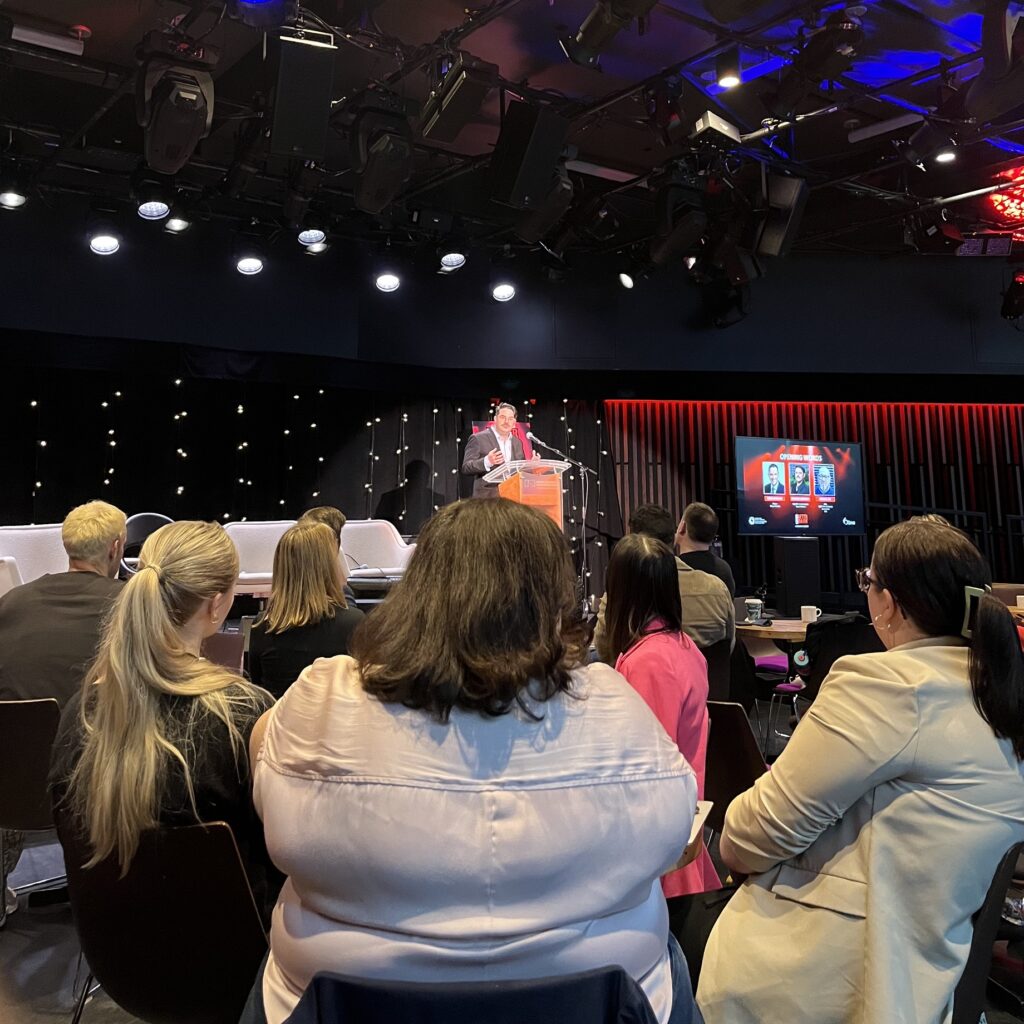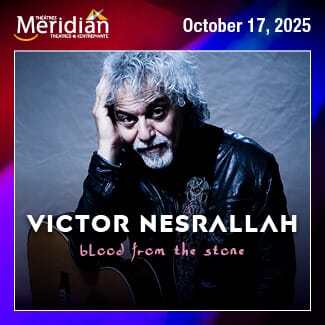By Asher Essien & Willemijn Bunskoek

Canada after Dark banner. Graphic provided.
On May 21–22, 2025, Canada After Dark, a two-day nightlife forum, was held as part of Ottawa’s first Capital Music Week (CxMW). Co-presented by Ottawa’s Nightlife Office and the Ottawa Music Industry Coalition (OMIC), the event spotlighted Ottawa’s nightlife within both national and international contexts.
Held at the National Arts Centre’s Fourth Stage, the forum brought together advocates, policymakers, and nightlife professionals to discuss how to build stronger, more strategic nighttime ecosystems.
Although it was the first time in Ottawa, Nightlife Commissioner Mathieu Grondin said he was no stranger to this kind of gathering.
“This is the fourth time I’ve worked on organizing something like this,” he said. “I’ve done it three times before in Montreal, and I’m always happy to see so many people come together to approach Canadian nightlife from different perspectives.”

Ottawa Mayor Mark Sutcliffe at Canada After Dark summit. Photo by Asher Essien.
Day One
The forum opened with remarks from Mayor Mark Sutcliffe and Grondin, followed by a keynote from Michael Kill, CEO of the UK’s Night Time Industries Association (NTIA). Representing over 10,000 member businesses, the NTIA’s advocacy highlights the full spectrum of night-time contributors, from DJs and venue owners to cultural workers.
“That data and documentation is power,” said Kill. “Numbers help influence government, and nightlife needs political champions who get it.”
Grondin echoed this, noting that Ottawa’s night time economy includes 4,000 businesses and generates an estimated $4.2 billion in output.
Several new initiatives were announced: a Nightlife Commission website is in development to serve as a resource and event guide; the ByWard Market Ambassadors Program, coming soon, will focus on nighttime safety; and OMIC is creating a new music strategy to better connect local talent to opportunity.
Speakers from across Canada shared insights into the forces shaping nightlife in their regions. Despite differing contexts, some trends were discussed; like the increasing experience-driven nature of nightlife; venue operators who think like both artists and economists at the same time; and whether cities should move from reactive approaches to active planning.
Day Two
Day two opened space for both intercity dialogue and European perspectives. Discussions included examples from cities like London, Kingston, Hamilton, and Mississauga, and moved into the topic of rural nightlife.
Grondin curated two European case studies: Rural Radicals by Ella Overkleeft (Netherlands), which explores creating nightlife outside urban centres, and Fluctuations from Thomas Scheele of VibeLab (Germany), a project turning waterways into artistic nightlife venues.
The rural nightlife theme felt particularly relevant to Ottawa, think of the greenbelt around the city, which is full of potential. Local initiatives like Mādahòkì Farm and Rideau Pines Farm were highlighted. A central challenge raised: who actually attends nightlife events outside the city centre? While tourists seem willing to venture out, locals are less likely to do so, citing infrastructure gaps as one reason.
Another conversation focused on placemaking: designing public spaces that reflect community needs. Steve Moran pointed to Place Laval in Old Hull, Gatineau, as a local success story: “These places are important because they create permanent spaces for cultural partners to kickstart your nightlife.”
To round out the day, the conversation shifted toward tourism, offering insight into how Ottawa positions itself to visitors, what other Canadian cities are doing to attract nighttime activity, and how the hotel industry fits into the nightlife ecosystem.

Nightlife Commissioner Mathieu Grondin at Canada After Dark summit. Photo by Asher Essien.
In short
Canada After Dark offered ground to explore how nightlife functions through both a business and cultural lens, nationally and internationally. While we heard from some local voices, there’s still room to see how Ottawa’s nightlife will take shape more in the future, as Grondin said is on his agenda.
Scheele said at the start of his keynote, “vibrant nightlife depends on engaged communities and grassroots initiatives that are willing to step up and challenge the status quo.” Grondin said that his inbox is always open for good ideas.
At Apt613, we’d love to hear from our readers: What do you notice and value about local nightlife? What do you want to see more of? If you’ve got a thought, intention, or inspiration, send it to community@apt613.ca!








.gif)